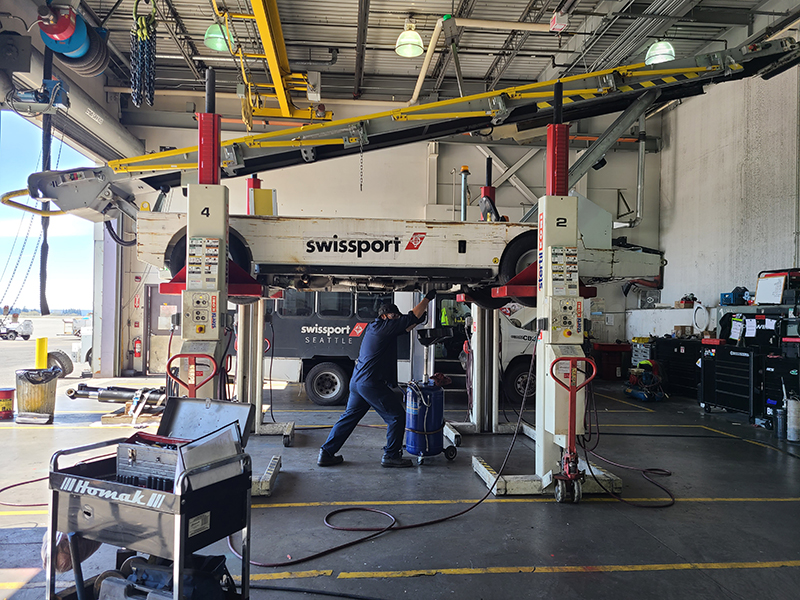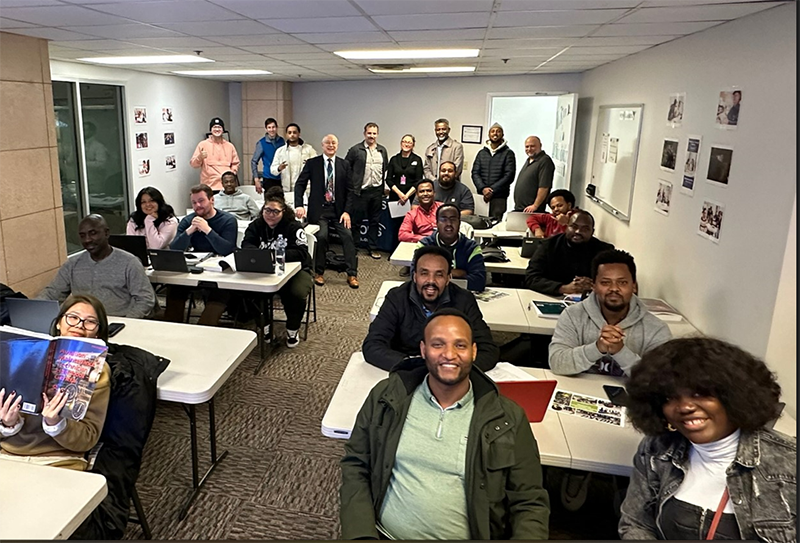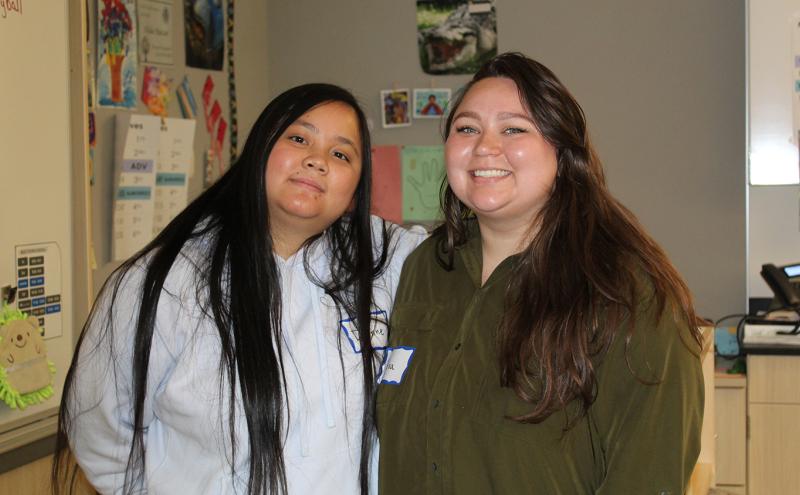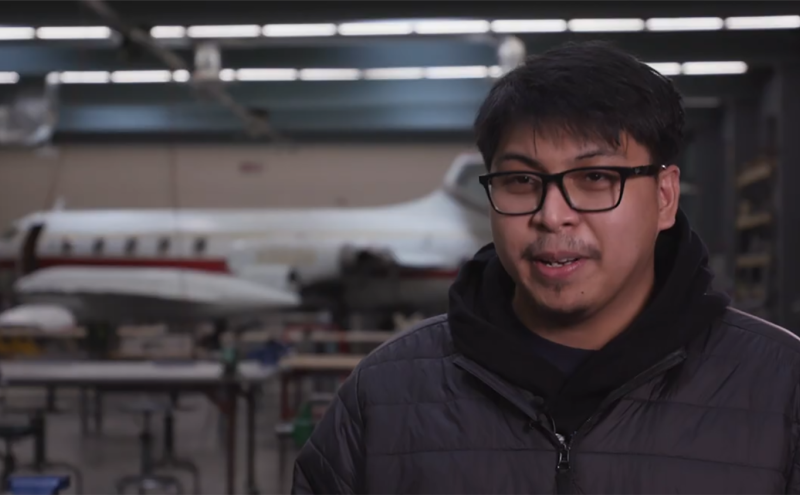By Leslie Horton, Workforce Development Program Manager, and Omie Drawhorn, External Relations, Port of Seattle
As a Ground Support Equipment (GSE) mechanic at Swissport at Seattle-Tacoma International Airport (SEA), Isidro Castro ensures that the equipment that supports aircraft operations stays in top shape. This equipment, like baggage tugs, aircraft refueling vehicles, water trucks, lavatory service vehicles, and catering vehicles are essential for your comfort, but less visible than the airplane. By maintaining the safety and serviceability of GSE, Castro plays a critical role in helping aircraft take off and land safely and efficiently. GSE is used in all aircraft operations and can be found on the airfield 24 hours a day, seven days a week.
GSE mechanics are currently in high demand with salaries starting at around $30 an hour, so it’s important to build a training pipeline that prepares workers for these important roles. In September 2024, the Port of Seattle will launch its second aviation career training pathway, an Introduction to Ground Support Equipment Mechanic (GSE) course. The course will offer a bridge for SEA employees to enter South Seattle College’s two-year Diesel and Heavy Equipment Technology training program. It joins the already established Introduction to Aviation Maintenance Technician (AMT) course, which automatically grants admission for those who complete the course into South Seattle College’s two-year aircraft maintenance technology program.
The new GSE education program is a partnership between the Port of Seattle, Port Jobs, and South Seattle College and is likely the first training program in the nation to focus on training Ground Support Equipment (GSE) mechanics. The full training program can be completed in two years or less and will be available to current SEA employees and taxi drivers.
Equitable access
Creating awareness and pathways for port-related careers is a key piece of the Port’s Workforce Development strategy. The Port Workforce Development team aligns its work to a June 2020 Port Commission policy directive.
The directive ensures that Workforce Development training initiatives:
- Increase equitable access to economic prosperity
- Leverage Port impact and innovation

The Port’s Workforce Development team creates career training pathways that reach structurally excluded communities, especially BIPOC, women, immigrants, and refugees.
Here’s how they remove barriers for these communities:
- Programs will always be free to participants. Free training supports equitable access for community members and lessens the economic hardship of participating in training programs
- Pathways into programs will be two years or less. This creates economic prosperity by ensuring that participants may quickly find their way to higher wage employment opportunities
- Training programs will be attached in some way to local community-based organizations (CBOs). This allows participants to receive support during training like case management, financial education, childcare planning, and English language support
A unique model
The new GSE training program follows a unique model, designed to complement the Port’s investments in the Airport Jobs Center within the Port Jobs office, located at SEA Airport, which connects job seekers to employers and job openings and provides airport workers with access to community college training. Learn about Port Jobs’ free services and resources to find a job at SEA Airport and provide career advancement support for airport employees.

Port Jobs and South Seattle College host the 12-week introductory or “bridge” course, which teaches students foundational skills needed for mechanic training, and embeds Integrated Basic Education Skills and Training (I-BEST) instruction into the course, such as test taking, study skills, and time management to set students up for success. This way participants receive specialized instruction and tutoring around any area that is a real or perceived barrier to moving forward.
South Seattle College I-BEST Instructor, Teresa Romaneschi explains that with the bridge courses, “We’re providing actual content. It’s just enough so students can see ‘How much time will it take me to learn this?’ ‘How interested am I in this material?’ ‘Am I ready?’ ‘Do I think I could do it?’ And make the best choices for themselves."
Sally Munoz attended the Intro to Aviation Maintenance Technology (AMT) class offered through Port Jobs and is now a student in the two-year AMT program at South Seattle College. “One of the things the bridge class really helped with was bringing me back into that student/work mode and growing confidence in myself that I could do it.”
Additionally, these courses focus on college level study skills, like breaking down a lengthy assignment, studying for tests, collaborating with peers, boosting confidence, and preparing students to move into the long-term program at South Seattle College.
Graduates of the AMT or the new GSE bridge courses may then enter the full, two-year corresponding training programs at South Seattle College, equipped with many skills for success. Beyond the skills gained in the bridge course, graduates of either track also receive a $1,000 scholarship from Port Jobs, sponsored by Alaska Airlines, which may be utilized to support their course work at the college.
Another important component of both AMT and GSE courses is making key connections to airport employers. Employer representatives are invited to speak to the intro classes at SEA, provide working field trips for students, and offer one-on-one mentorship through internships and on-the-job training. Employers have also been key advisors of curriculum development for these training programs, ensuring that students are trained to meet industry standards and will be prepared for hire into these companies’ post-certificate completion. Throughout the last nine months of building the GSE program, both Daifuku Airport Technologies and Swissport, located at SEA, have been key advisory partners.
Port Jobs is hosting orientations throughout the month of August to recruit SEA workers to enter the upcoming Fall 2024 bridge courses.








